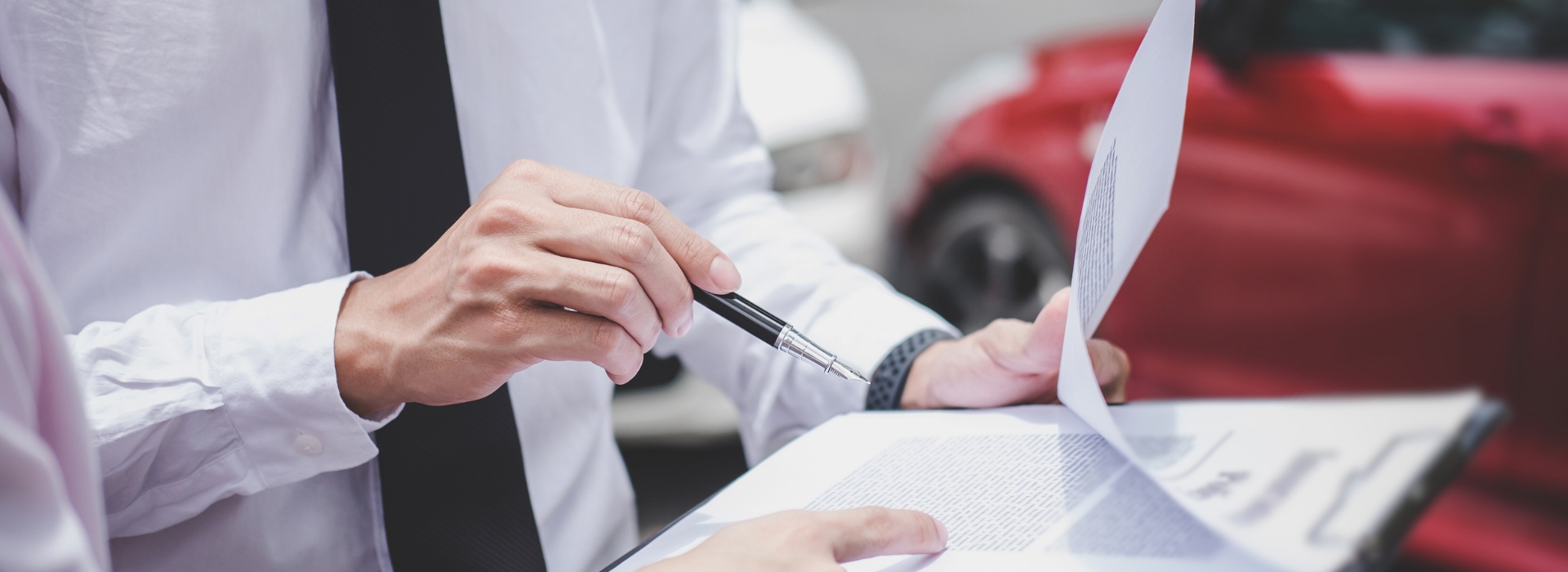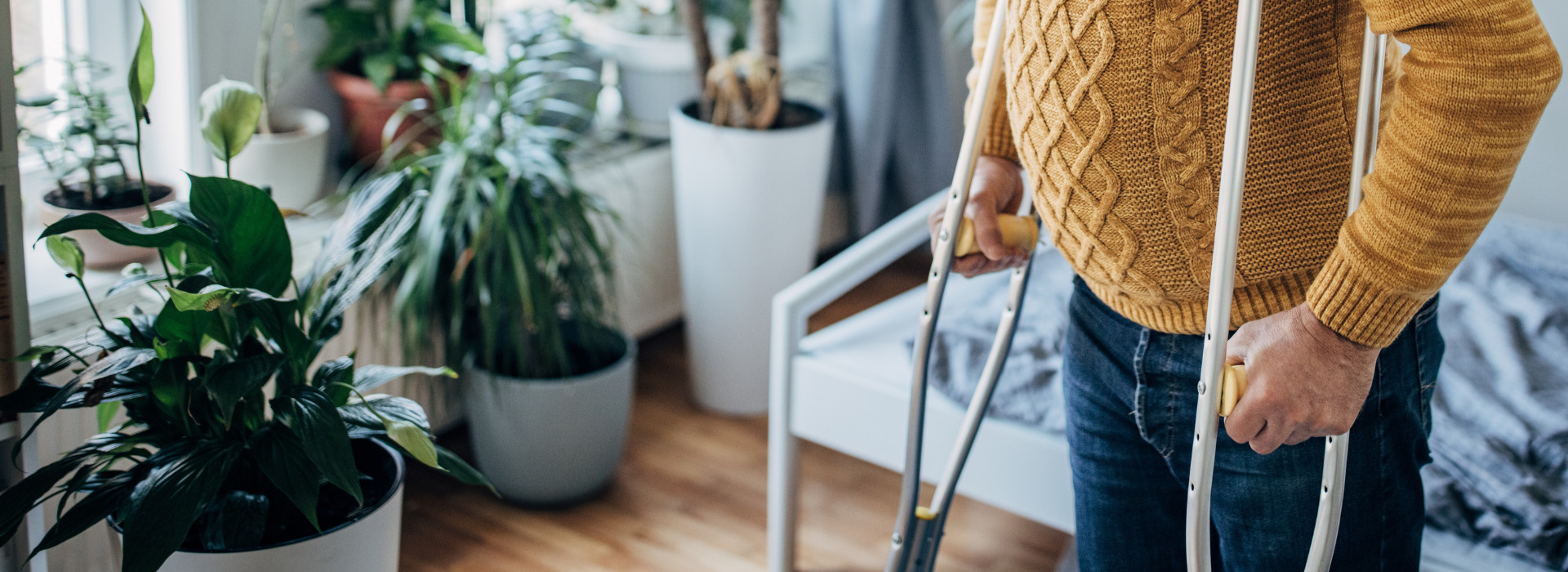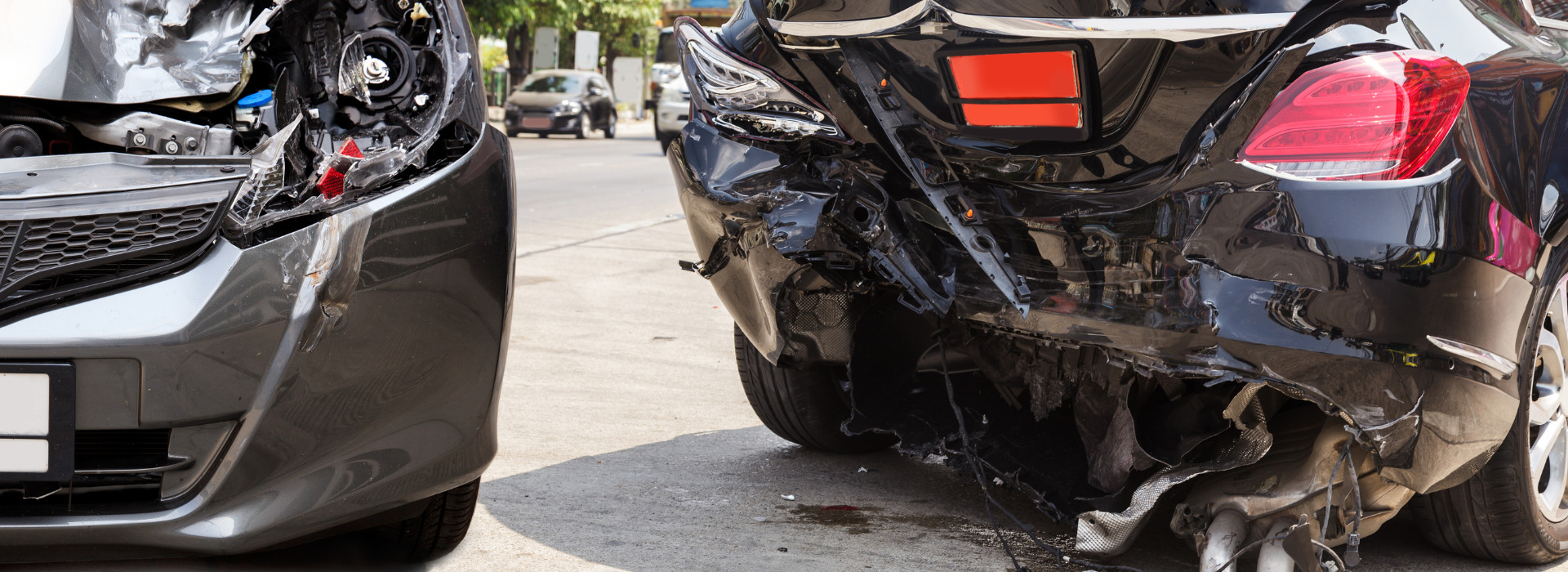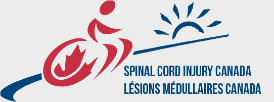Have you or a loved one been injured in a car accident? There are steps you should take following a car accident to preserve your legal rights and ensure you give yourself the best chance to recover physically and emotionally. The team at James H. Brown & Associates is here to help you understand what you need to do after a car accident in Alberta.
What to do at the scene of an accident
If you are involved in a motor vehicle accident, your first priority should be your health and safety. You should take any necessary steps you can to get yourself into a safe position, including calling an ambulance to treat your injuries. Afterwards (and only if it’s possible for you to do so without worsening any injuries you have), you can start taking steps to ensure the area is safe, the correct authorities are informed, and capturing important details about the accident to preserve your rights.
Here’s a step-by-step list detailing what to do at the scene of an accident after you’ve taken the steps you can to protect your physical safety:
Step 1: Check for injuries
If anyone is hurt, it’s important to seek help from medical professionals as soon as possible. Depending on the extent of the injuries, you may need to either call emergency services, visit your family doctor, or go to a local urgent care centre. Although, it is important to avoid driving if you feel dazed, confused, tired, or unwell. We suggest accepting treatments proposed by medical professionals since it can be difficult to self-assess your injuries. It’s better to err on the side of caution.
If you don’t notice the injuries initially, or the injuries take some time to appear – as sometimes happens with emotional distress after a car accident – you should seek medical treatment as soon as the injury or symptoms appear. Again, even if the injury seems minor, early treatment can lead to better recovery while also preserving your legal rights.
Step 2: Clear The Road
If it’s safe and possible for you to do so, consider clearing the road of anything that might be dangerous to other road users. You should consider moving damaged vehicles off to the side of the road and clearing any significant debris from the roadway. Again, only take this step if it’s safe to do so.
If they still work, it’s usually helpful to turn on your hazard lights at this point to warn other road users to slow down.
Step 3: Alert the Authorities
If you think it’s appropriate, you should alert the authorities about the accident. While you’ll need to use your own judgment, here are some circumstances where it’s usually a good idea to call 911 following an accident:
- There has been a fatality
- Someone is seriously injured
- Significant property damage has occurred
- A driver fled from the scene of the accident
- You believe the other driver is intoxicated or drug-affected.
Otherwise, if it is feasible and if you feel it’s safe to do so, you should search for the non-emergency line for your local police detachment and make a report. The police may require you to go to a collision reporting centre or a police detachment to report the accident. If this is the case, you should do this as soon as possible. Be sure to keep any copies of statements or reports that you are provided, and ask the police for their report number if they don’t provide you with any paperwork at the scene.
Step 4: Gather Information and Document The Accident
There are certain steps you must take after an accident, such as exchanging driver’s licence and insurance details, as well as contact information. If the driver of a vehicle is not able to provide the information due to injuries, you can ask a passenger from the vehicle to provide it.
If the other driver (or passenger) is unable to or refuses to provide their information, you should take a photo of their licence plate number or write it down. It’s also important to make a note of the vehicle description and driver description before they leave the scene. Ideally, take photos of the vehicle and driver.
If you can, it’s helpful to have photos of the scene of the accident, including pictures of any damage to the vehicles and surrounding property. If injured parties are comfortable, you may also take photos of visible injuries.
Finally, speak with any witnesses and gather their contact information. It’s best to get the information for yourself, even if the other driver says that they have already collected it.
What to do post-accident
One of the most important steps you’ll take after an accident is to speak with a car accident lawyer. A lawyer can answer questions about how to protect your best interests, connect you to treatment providers who will assess and record your injuries, and help you access the mental health support you may need to recover.
Working with a well-resourced firm, like James H. Brown and Associates, provides you with lawyers who’ve worked extensively with car accident victims to get compensation for injuries and recovery. Accident victims and their families need resources, empathy, compassion, understanding, and an experienced team of dedicated advocates who are committed to doing what it takes to attain justice and fight for fair compensation.
Beyond speaking with an accident lawyer and assuming you have sought medical treatment for your injuries, including emotional distress, these are some other steps you should take after an accident:
Report the Accident
If you haven’t already, you should ensure that the accident is reported – especially if there is property damage totalling $5,000 or more. If vehicles are driveable, and there are no immediately serious injuries, an accident can be reported at a collision center, or a police station depending on your location.
It’s important that you keep any records you are provided by the police or collision center personnel.
Keep Detailed Records
An accident and the related injury can change your life in unexpected and drastic ways. Injury is stressful, painful, and incredibly disruptive. It is easy to quickly forget how your life is impacted by your injury day-to-day. So, we suggest that you keep a detailed journal with notes about how the accident has impacted your work, leisure, family, ability to help around the house, and wellbeing.
You should also carefully track your medical expenses after the accident since you will likely be reimbursed for these costs but only if you have records and receipts. It’s helpful to note the date, the amount spent, and any ‘ancillary’ costs – like a hotel room if you had to travel for the appointment. We also suggest taking a photo of the invoice and payment receipt or keeping the physical receipts in an organized file folder.
Notify your Insurer
You’re required to report any accident involving a loss or damage to another person or property to your insurance company. It’s the law in Alberta. This is important because your claim may be denied if you fail to report the accident when it occurs.
Follow your Doctor’s Advice
Following your medical team’s advice is the best way to recover after your accident, but it’s also important to protect your right to compensation. Unfortunately, if you don’t follow your medical team’s advice, the amount of compensation you receive can be impacted.
Be Careful who you Talk to
After an accident, you will want to let your friends and family know that you are safe and give them an update about where you are (at the scene, or travelling to a hospital, for example). This is very normal and is fine for you to do.
However, we recommend that you don’t post about the accident on social media or any other public website. This is because insurance companies regularly check online sources for information about the accident. So you could inadvertently harm your claim for compensation through these posts. It’s usually best that you make your profiles private and avoid sharing any information about your activities after the accident until your claim is settled.
If you’re unsure about whether your social media activities could hurt your claim for compensation, we suggest you speak with a qualified lawyer. You can start with a free consultation with our team.
How long do you have to report an accident?
We want to remind you that you have obligations to report your accident to your insurer and (often) to the police as soon as possible after the accident. If you’re unsure about your obligations, it’s usually better to report it. There can be severe consequences if you fail to report an accident that should have been reported.
What you shouldn’t do after a car accident
In addition to avoiding posting on social media about the accident or your activities after the accident, it’s very important that you do not do these three things if you want to protect your rights to compensation:
Do NOT accept liability or fault
In Alberta if you voluntarily accept liability or settle a claim without your insurance company involved, you are giving up important legal protections.
Instead of assuming fault, the best thing to do is to make sure that everyone is as safe as possible and focus on exchanging information and documenting the accident. Remember: police do not determine liability – and you shouldn’t either. It’s not worth waiving your rights at the scene of an accident when things may not be clear.
Do not accept a quick settlement offer
Insurance companies are often eager to settle for the ‘cap’, which is the maximum amount written into Alberta law for soft tissue damages. However, the ‘cap’ is only for minor injuries and, while there is a legal maximum, it does not apply if you have long-term pain or other impairments.
There are a wide range of injuries that are not ‘capped’. So it’s very important that you speak with an experienced personal injury lawyer before you accept any settlement for your injuries. If you don’t, you may end up settling your claim for significantly less than it’s worth – which can cause long-term financial hardship and can impact your ability to seek adequate treatment for your injuries.
Do not skip treatment
It’s very important that you follow your treatment plan, attend all appointments, and follow the advice of your medical team. Do not skip treatment unless your injuries make it impossible for you to go. If you are unable to attend your appointments or complete prescribed treatments, it’s very important that you document the reasons why and, ideally, you should speak with a lawyer before going against medical advice.
What if you aren’t at fault?
The steps you need to take immediately after a car accident are the same if you’re at fault or not at fault – get medical help, stay safe, and document the scene.
In Alberta, the court system is involved in determining fault because individuals can contest the insurer’s determination of fault in certain circumstances.
Whether or not you are at fault for an accident is mostly determined by the regulations governing the use of Alberta roads. There are also other considerations that Canadian Courts have relied on to determine fault for a motor vehicle accident. For example, drivers have a duty to each other to take reasonable steps to avoid an accident. A driver might be at fault if they had an opportunity to safely avoid an accident with another party who was breaking the rules of the road, but they didn’t. Drivers might also be contributorily negligent, for example, not wearing a seatbelt, or both drivers breaking the rules of the road might result in both drivers bearing some fault for the accident.
An at-fault party is liable for the damages caused by the accident. These include damages that are calculable, like the amount of lost wages you might have if you’re unable to work, or the amount spent on out-of-pocket treatments. These also include difficult-to-determine damages, like the loss the injury causes to a person’s quality of life when it is impairing or causes severe pain, or the extent to which an injury might affect a person’s ability to advance their career. Until your injury is stable and the likely long-term impacts have been documented, it can be difficult, or impossible to project what the damages for a claim might be.
When to Seek Legal Help
After an accident, you should book a free consultation with an experienced lawyer as soon as possible. This is a crucial step in navigating the devastating aftermath of an accident, including the complex legal system. It’s important that you do this as early as possible to protect your rights because the earlier in the process that you retain a lawyer, the more likely it is that the appropriate steps will be taken to protect your legal rights.
After an injury, no settlement can give you back your health, but a dedicated injury lawyer can assist you in receiving a settlement which reflects the impact of the accident on your life, and allows you to dedicate the energy, space, and time you need to recovery.
The lawyers at James H. Brown & Associates are committed to supporting you throughout the process of your recovery and they’re dedicated to seeking fair compensation for your injuries. Our team understands the importance of getting (and being able to afford) the right support to recover from a motor vehicle accident.
What to expect in the months after the accident
There is a range of serious injuries that are resolved in a few months with appropriate care and treatment. In some of these cases, the section B benefits from your vehicle insurance can provide you with the immediate care you need in the months following the accident. Usually, this will involve physiotherapy, counselling, and other treatments.
Many injuries unfortunately result in life-long impairments that will have an ongoing impact on the victim and their loved ones. Complex care can be more difficult to attain. For more complicated injuries, the legal process also usually becomes more complicated. In this case, it’s important to have a legal team with strong connections to qualified and understanding medical professionals to improve your prospects for recovery and protect your legal rights to fair compensation.
How long does it take to settle a car accident claim in Alberta?
The timeline of each personal injury claim is unique to the individual who is injured. In some cases, you can settle for the capped amount for minor soft tissue injuries in a matter of months or weeks.
In the case of a permanent, life-changing injury, it will usually be quite some time before your injuries stabilize, and it’s not advisable that you settle your claim before this happens. This is because you won’t usually know the full extent and impact of your injuries until the injury stabilizes, so it’s not possible to work out what fair compensation looks like.
If you proceed with a claim for your injuries, the steps in a claim are as follows:
- File a statement of claim must be filed against the responsible party within two years of the accident.
- Seeks treatment and stabilize your injuries as much as possible.
- Work with your lawyer to document the extent of your injuries and investigate the crash.
- Enter negotiation with the insurer and/or responsible parties.
- Exchange documents and information with the insurer and/or their legal representative. This step often involves questioning.
- At this point, it’s likely that we will negotiate a settlement.
- If a settlement can’t be reached, your matter may go to mediation.
- Finally, the case proceeds to trial.
Your lawyer will help you through each phase of the process and explain how to navigate them while protecting your interests and seeking justice for your injuries.
Protect your rights and stay prepared
Your legal rights can be difficult to understand and complicated in the aftermath of an accident. The best things that you can do are seek medical attention and follow the advice of your doctor and lawyer. It’s also essential that you keep detailed notes of the impact of your injuries on your everyday life and the costs you incur to manage your injury.
The team at James H. Brown and Associates is here to support you in every step of the journey. Start with a free consultation.


















